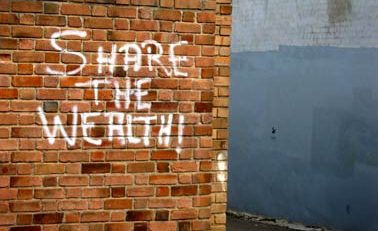Ginebró school, a cooperative education founded 40 years ago in Catalonia. A company model of solidary and social economy supported by l’iesMed (photo iesMed)
With the support of the Secretariat of the UfM
The Social and Solidarity Economy is playing an active role in the economic integration of women in the Mediterranean. View of Rodérick Egal, president of iesMed (Innovation & Social Economy in the Mediterranean) cooperative company.

What role does the Social and Solidarity Economy play in women’s economic integration?
Rodérick Egal: The Social and Solidarity Economy (SSE) plays an active part in women’s integration in the Mediterranean, particularly in Morocco, where many female-run cooperatives have been developed, mainly in the craft and agricultural industries. But it remains a category that is unfairly thought of as the “economy of the poor”. However, these companies are just as concerned with profitability, except that in the Social and Solidarity Economy, money is not an end in itself but rather a means. Income is not redistributed to benefit shareholders but rather to reward producers, as well as being used to grow the company, as demonstrated by the largest cooperative in the world, the Spanish group Mondragon.
But how can the SSE allow women to better integrate into the economy?
R.E.: Women are directly affected because it is a type of economy that allows them to establish their own livelihoods and independence, particularly in traditional societies. The social and solidarity economy depends on people’s willingness to play their role as citizens and participate actively in society. I am convinced that this is a major issue for women.
To the south of the Mediterranean, this embryonic economy continues to be affected by the difficulties of development. That’s one of the reasons why SSE companies have trouble accessing funding in these countries. Bankers do not trust these companies because they believe that they are unlikely to grow significantly, which is why we need to change this view.
The Union for the Mediterranean plays a paramount role
What can the Union for the Mediterranean do to improve the situation?
R.E.: I believe that the Union for the Mediterranean has a very important role to play to ensure better integration of women in the social and solidarity economy. It is essential that the private sector be involved in this area to the south of the Mediterranean. Indeed it is the capacity to create synergies between the public and private sectors that makes the Union for the Mediterranean so important. And we mustn’t forget its ability to connect stakeholders in this economy with lenders, in order to spread funding tools that are not truly available yet. One of iesMed’s aims is to create a “meso” culture by connecting “macro” lenders (i.e. those that currently fund development in the Mediterranean) with “micro” projects, particularly those led by women in North Africa. The Union for the Mediterranean is particularly well placed to support this drive.
Special issue : Fostering women’s participation in Mediterranean economic life
Read more: http://en.econostrum.info/A-social-solidarity-and-female-economy_a374.html?print=1#ixzz3aVSXSkwu




Leave a Reply